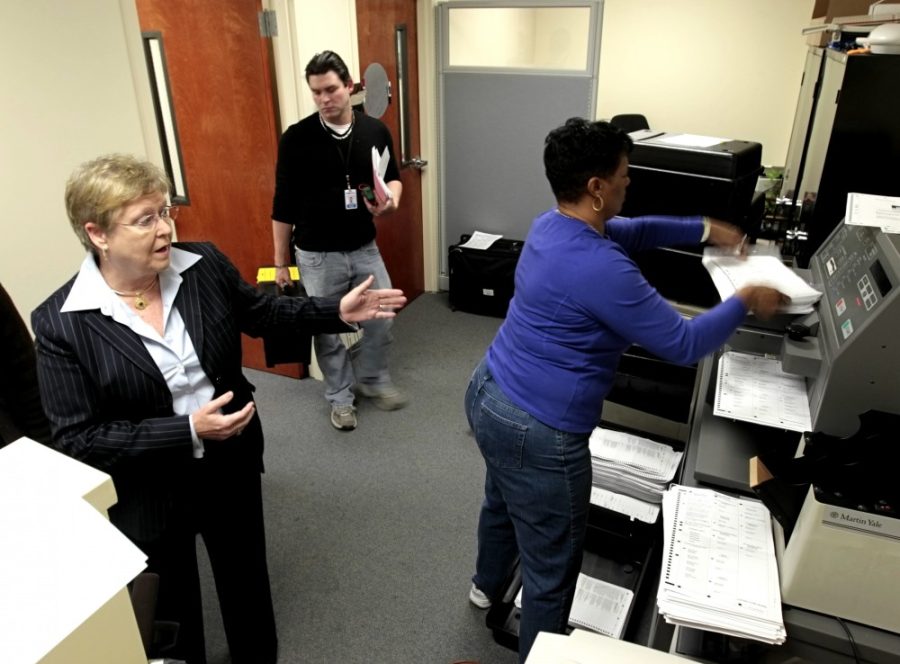WASHINGTON — Nothing changed.
Barack Obama will remain the president. Democrats will still control the Senate. Republicans will still control the House of Representatives. The same leaders who brought the nation to the brink of a historic default in 2011 and have kept the government open only with a series of short-term fixes will remain in power.
They offered soothing words and hopes for compromise Wednesday. House Speaker John Boehner, R-Ohio, reached out to Democrats, urging serious talks aimed at avoiding a plunge over the looming “fiscal cliff,” even suggesting Republicans were willing to talk about increasing tax revenue.
He argued that changes in the tax code, including loophole closings and a “fairer, simpler system,” can “result in the additional revenue the president seeks. It will support economic growth, which means more revenue is generated for the Treasury.”
Democrats stuck to their insistence that any plan must have higher taxes on the wealthy. But, said Senate Majority Leader Harry Reid, D-Nev.: “I’m willing to negotiate anytime, any issue.”
None of their rhetoric is particularly new. But the nation is approaching that cliff at the start of next year when Bush-era tax cuts expire and automatic spending cuts are due to take effect, and the election results suggest any movement toward compromise is going to be long and tortured.
The key change in how Washington conducts its business is likely to rest with Obama.
“The big question is how much leadership the president will show,” said Stuart Rothenberg, an independent political analyst. “How much heavy lifting is he willing to do?”
Obama alone has the ability to broker political peace. But first, Republicans need to figure out the party’s role in such an effort. Boehner’s olive branch was the opening act of a struggle for the Republicans’ political soul between hardcore and pragmatic conservatives.
Some leaders remained convinced Wednesday that a resolute conservative message will ultimately prevail.
“The American people did two things,” said Senate Minority Leader Mitch McConnell, R-Ky. “They gave President Obama a second chance to fix the problems that even he admits he failed to solve during his first four years in office, and they preserved Republican control of the House of Representatives.”
Leaders of the conservative movement vowed to keep the crusade alive, and some put the blame for Tuesday’s shortfalls on Romney, never a favorite since his days as a moderate governor of Massachusetts.
“Republicans never, ever win the presidency unless they nationalize the election by campaigning on a conservative agenda,” said veteran conservative activist Richard Viguerie. “Out of last night’s disaster comes some good news — conservatives are saying, ‘Never again’ are we going to nominate a big government-establishment Republican for president.”
Not everyone was so defiant, suggesting a more conciliatory Obama — something Republicans haven’t seen for nearly four years — could bring Republicans to his side for the right compromise.
“We have a period of reflection and recalibration ahead for the Republican Party,” said Sen. John Cornyn of Texas, the National Republican Senatorial Committee chairman. “While some will want to blame one wing of the party over the other, the reality is candidates from all corners of our GOP lost. … Clearly, we have work to do in the weeks and months ahead.”
Democrats have new challenges of their own. More liberal senators will replace centrist senators in several states, and in the House, the Blue Dog caucus, a group of party moderates, dwindled to a handful of members.
Democrats need to take care not to be seen as the party of the left, said Floyd Ciruli, a Denver-based analyst.
“The danger is that they become the party of coalitions,” he said. “If the election was a choice between activist and robust government, the public said it wanted to move only to the center-left.”









